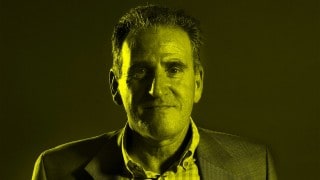Heute wurde Norman Borlaug mit der höchsten Ehrenwürde der USA, der Congressional Gold Medal, ausgezeichnet.
http://media.www.thebatt.com/media/storage/paper657/news/2007/07/17/News/Feeding.Millions-2924207.shtml
Das scheint niemanden in Europa groß zu interessieren. Die meisten Leute haben sowieso keine Ahnung, wer Norman Borlaug ist. Dabei handelt es sich um einen der bedeutensten und einflußreichsten Wissenschaftler des 20. Jahrhunderts. Niemand hat mehr Menschenleben gerettet als er. Aus Anlaß der heutigen Ehrung, empfehle ich das sehr aufschlußreiche Interview des Reason Magazins mit Borlaug aus dem Jahre 2000:
Three decades after he launched the Green Revolution, agronomist Norman Borlaug is still fighting world hunger—and the doomsayers who say it’s a lost cause.
Who has saved more human lives than anyone else in history? Who won the Nobel Peace Prize in 1970? Who still teaches at Texas A&M at the age of 86? The answer is Norman Borlaug.
Who? Norman Borlaug, the father of the “Green Revolution,” the dramatic improvement in agricultural productivity that swept the globe in the 1960s.
Borlaug grew up on a small farm in Iowa and graduated from the University of Minnesota, where he studied forestry and plant pathology, in the 1930s. In 1944, the Rockefeller Foundation invited him to work on a project to boost wheat production in Mexico. At the time Mexico was importing a good share of its grain. Borlaug and his staff in Mexico spent nearly 20 years breeding the high-yield dwarf wheat that sparked the Green Revolution, the transformation that forestalled the mass starvation predicted by neo-Malthusians.
In the late 1960s, most experts were speaking of imminent global famines in which billions would perish. “The battle to feed all of humanity is over,” biologist Paul Ehrlich famously wrote in his 1968 bestseller The Population Bomb. “In the 1970s and 1980s hundreds of millions of people will starve to death in spite of any crash programs embarked upon now.” Ehrlich also said, “I have yet to meet anyone familiar with the situation who thinks India will be self-sufficient in food by 1971.” He insisted that “India couldn’t possibly feed two hundred million more people by 1980.”
But Borlaug and his team were already engaged in the kind of crash program that Ehrlich declared wouldn’t work. Their dwarf wheat varieties resisted a wide spectrum of plant pests and diseases and produced two to three times more grain than the traditional varieties. In 1965, they had begun a massive campaign to ship the miracle wheat to Pakistan and India and teach local farmers how to cultivate it properly. By 1968, when Ehrlich’s book appeared, the U.S. Agency for International Development had already hailed Borlaug’s achievement as a “Green Revolution.”
In Pakistan, wheat yields rose from 4.6 million tons in 1965 to 8.4 million in 1970. In India, they rose from 12.3 million tons to 20 million. And the yields continue to increase. Last year, India harvested a record 73.5 million tons of wheat, up 11.5 percent from 1998. Since Ehrlich’s dire predictions in 1968, India’s population has more than doubled, its wheat production has more than tripled, and its economy has grown nine-fold. Soon after Borlaug’s success with wheat, his colleagues at the Consultative Group on International Agricultural Research developed high-yield rice varieties that quickly spread the Green Revolution through most of Asia.
Contrary to Ehrlich’s bold pronouncements, hundreds of millions didn’t die in massive famines. India fed far more than 200 million more people, and it was close enough to self-sufficiency in food production by 1971 that Ehrlich discreetly omitted his prediction about that from later editions of The Population Bomb. The last four decades have seen a “progress explosion” that has handily outmatched any “population explosion.”
Borlaug, who unfortunately is far less well-known than doom-sayer Ehrlich, is responsible for much of the progress humanity has made against hunger. Despite occasional local famines caused by armed conflicts or political mischief, food is more abundant and cheaper today than ever before in history, due in large part to the work of Borlaug and his colleagues.
More than 30 years ago, Borlaug wrote, “One of the greatest threats to mankind today is that the world may be choked by an explosively pervading but well camouflaged bureaucracy.” As REASON’s interview with him shows, he still believes that environmental activists and their allies in international agencies are a threat to progress on global food security. Barring such interference, he is confident that agricultural research, including biotechnology, will be able to boost crop production to meet the demand for food in a world of 8 billion or so, the projected population in 2025.
Meanwhile, media darlings like Worldwatch Institute founder Lester Brown keep up their drumbeat of doom. In 1981 Brown declared, “The period of global food security is over.” In 1994, he wrote, “The world’s farmers can no longer be counted on to feed the projected additions to our numbers.” And as recently as 1997 he warned, “Food scarcity will be the defining issue of the new era now unfolding, much as ideological conflict was the defining issue of the historical era that recently ended.”
Borlaug, by contrast, does not just wring his hands. He still works to get modern agricultural technology into the hands of hungry farmers in the developing world. Today, he is a consultant to the International Maize and Wheat Center in Mexico and president of the Sasakawa Africa Association, a private Japanese foundation working to spread the Green Revolution to sub-Saharan Africa.
http://www.reason.com/news/show/27665.html









